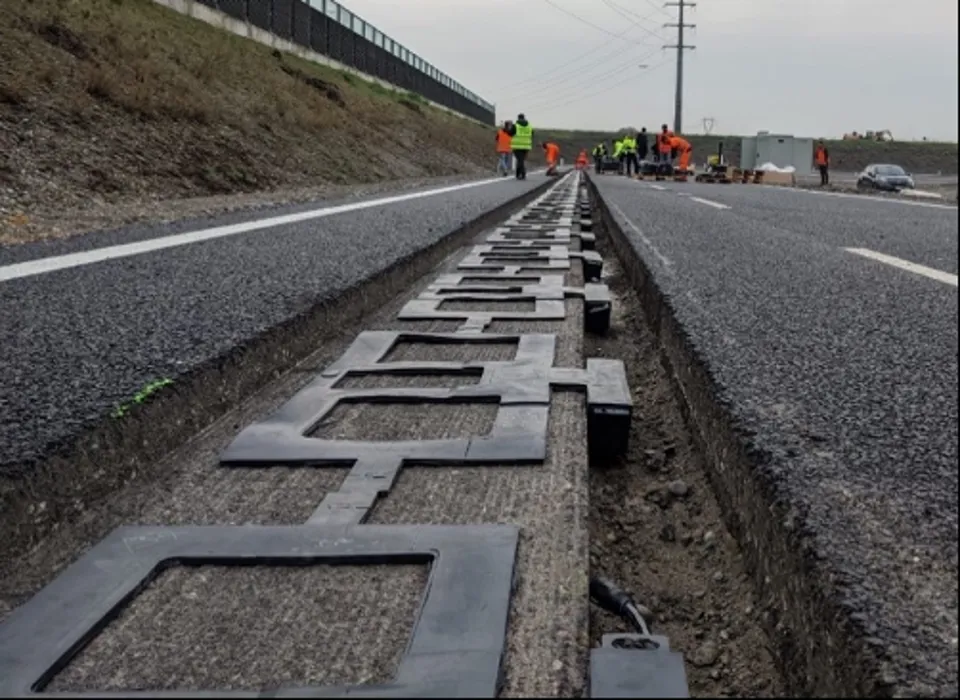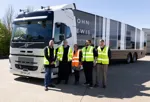Coventry University is investigating the potential of using metal coils fitted below the road surface to recharge electric vehicles (EVs) on the move.
The feasibility study called Dynacov – short for dynamic charging of vehicles – uses dynamic wireless transfer technology to establish a connection between subscribing vehicles and a charge delivered from the road surface.
The technology, it says, could be deployed for buses and logistics vehicles.
Funded by National Grid Electricity Distribution and building on dynamic wireless transfer technology prototyped by ElectReon, the Dynacov project is being led by Coventry University and Coventry City Council in collaboration with Cenex.
The tests are focussed on a section of Kenilworth Road at its junction with the A45 and it is hoped this project will attract Government support and funding for the next stages to trial an effective solution.
Kevin Vincent, director of Coventry University’s Centre for Connected and Autonomous Automotive Research, said: “Dynacov demonstrates the benefits of universities and local authorities sharing a common vision for the sustainable future of our cities and then having the agility to work in a collaborative and timely manner with industry stakeholders to effect positive change.”
The technology being developed is one of six innovations proposed by the Key Cities Innovation Network (KCIN) in Civic Partners in Net Zero, a collection of peer-reviewed studies detailing innovative ways in which universities are working with their local communities to achieve net zero targets.
KCIN co-ordinates universities associated with the cross-party group of 27 Key Cities across England and Wales – including Coventry – which is the largest grouping of urban authorities in the UK outside London.
The studies, selected not only for local relevance but also their potential for replicating in other places, range from tech innovation and policy development to engaging local communities with climate science.
Local action on climate change was flagged as a priority by Key Cities last year, when they commissioned a study tracking the performance of local authorities across a range of climate indicators.
Councillor Jim O’Boyle, Coventry City Council’s cabinet member for jobs, regeneration and climate change, said: “Innovation will be one of the ways we tackle the causes and consequences of climate change, and innovation is something we are very good at here in Coventry, especially in the transport sector which is in our DNA.
“It is great to be collaborating with Coventry University and Cenex to show how roads can be used to charge vehicles as they pass by and solutions like this will enable the transition to electric vehicles to happen more quickly.”




















Login to comment
Comments
No comments have been made yet.